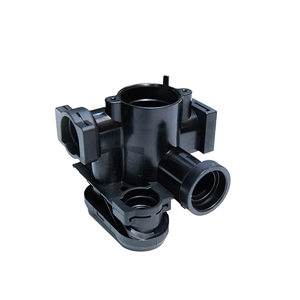Next-Generation Plastic Parts Production: Innovations Reshaping Manufacturing
The plastic parts production industry stands at a technological crossroads. Modern plastic parts production methods now deliver unprecedented precision while addressing sustainability concerns. Across global markets, plastic parts production has evolved beyond traditional injection molding to incorporate cutting-edge solutions.

For specialized applications, low volume production of the plastic parts offers game-changing advantages. The flexibility of low volume production of the plastic parts enables rapid prototyping and customization. Many medical device manufacturers now rely on low volume production of the plastic parts for patient-specific solutions. This approach to low volume production of the plastic parts significantly reduces time-to-market for new designs.
At production scale, advanced moulding techniques dominate. Contemporary moulding processes achieve cycle times 40% faster than decade-old systems. Multi-material moulding now produces complex plastic products in single operations. The moulding sector continues advancing with AI-driven process optimization. Sustainable moulding practices reduce energy consumption by up to 30%.
The plastic products market continues its rapid expansion. Today's plastic products incorporate smart technologies and enhanced durability. Medical-grade plastic products must meet increasingly stringent regulatory standards. The automotive sector demands plastic products with metal-like strength. Eco-conscious plastic products now utilize up to 100% recycled content.
Modern plastic parts factory operations leverage Industry 4.0 technologies. A state-of-the-art plastic parts factory now features fully automated production lines. The most efficient plastic parts factory designs minimize material waste through closed-loop systems. Many plastic parts factory facilities achieve zero-defect production through machine vision inspection.
Material Science Breakthroughs
Advanced plastic parts production now utilizes high-performance polymers like PEEK and PPS. These moulding-compatible materials withstand extreme temperatures and chemical exposure. The latest plastic products incorporate self-reinforcing molecular structures. Many plastic parts factory operations now process biodegradable composites.
Additive Manufacturing Revolution
3D printing transforms low volume production of the plastic parts. Additive moulding techniques create previously impossible geometries. Leading plastic products manufacturers use 3D printing for rapid tooling. Some plastic parts factory operations achieve 85% material utilization via additive processes.
Automation Advancements
Robotic systems now handle 90% of plastic parts production tasks. Automated moulding cells operate with ±0.01mm repeatability. Modern plastic parts factory robots perform self-diagnostic maintenance. Vision systems in plastic products manufacturing detect micron-level defects.
Sustainability Initiatives
Closed-loop plastic parts production systems minimize waste. Many moulding operations now use renewable energy sources. Eco-friendly plastic products command premium market prices. Progressive plastic parts factory facilities achieve carbon-neutral status.
Industry-Specific Solutions
Automotive plastic parts production now incorporates in-mold electronics. Medical-grade plastic products require USP Class VI certification. Consumer plastic products increasingly use post-consumer recycled content. Industrial plastic parts factory output must meet stringent ISO standards.
Economic Impacts
Automated plastic parts production reduces labor costs by 60%. Advanced moulding techniques decrease energy use by 35%. Localized plastic products manufacturing shortens supply chains. The average plastic parts factory achieves ROI within 2-3 years.
Future Outlook
Next-gen plastic parts production will incorporate AI optimization. Smart plastic products will feature embedded IoT connectivity. The plastic parts factory of 2030 will operate autonomously. Sustainable moulding practices will become industry standard.

